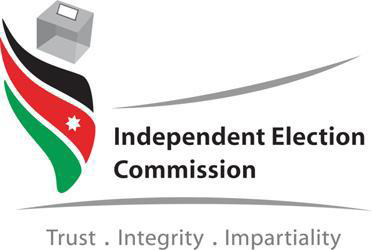AMMAN — The Independent Election Commission (IEC) Chief Commissioner Musa Maaytah on Wednesday said that 13 political parties have rectified their legal status in preparation for the upcoming elections.
Maaytah’s comments were made during a meeting with female journalists at the IEC’s headquarters.
“We have 12 existing parties that either merged or rectified their legal positions and one that was established recently that also completed the necessary requirements,” Maaytah said.
The minister said that he expects that by the closing date for the registration of the political parties on May 14 to have at least 20 which will run for the upcoming Parliamentary elections.
The former minister said that 41 Lower House of Parliament seats will be designated for political parties out of the 138 allocated seats, which “represents around 30 per cent in the coming 20th Parliament”.
The ratio will increase to 50 per cent for political parties in the 21st Lower House of Parliament, and will eventually reach 65 per cent in the 22th Parliament, according to Maaytah.
Also during the meeting, Maaytah stressed the importance of the “media’s role in spreading political culture in general, and specifically in sharing the role of political parties”.
“The media’s relationship with the commission is a complimentary one since it will work to ensure the success of the election process in all its periods,” Maaytah told journalists.
He added that the IEC is currently working on training police officers, judges, media personnel and individuals who will take part in the election process on the Political Parties Law.
Last week, the IEC published an updated voters' registry based on residency, stating that voters can “amend their place of residency by submitting the necessary documents that prove their new residency”.
Earlier this month, the IEC announced that a total of 4,918,772 citizens are eligible to vote in the upcoming Parliamentary elections.
The IEC stated that 53 per cent of registered voters are women, according to the government entity’s website.
The IEC also stated that 110,446 citizens did not obtain national identification cards.
Amman topped the number of voters with 1,888,953, followed by Irbid (870,939), then Zarqa (705,725).
In 2022, the Senate and the Lower House passed the 2022 amendments to the Political Parties Law, which require political parties to increase the proportion of women and youth to at least 20 per cent within three years after their foundation.
There should be no less than 1,000 founding members of political parties, and at least 10 per cent should be women and young people between 18 and 35 years old, according to the new law.
The law also allows university students who join political parties to engage in partisan activities on campus without any infringement on their rights, as a bylaw will be issued to regulate such activities.
It also stipulates that a founding conference shall be held by the party within a year after meeting the requirements, where no less than a third of the party’s 1,000 founders shall attend, and must represent at least six governorates.
The Political Parties Law, along with the Elections Law, has been revisited by the Royal Committee to Modernise the Political System as part of its mandate to achieve the envisioned political reform.
On February 27, His Majesty King Abdullah met with Maaytah at Al Husseiniya Palace and stated that Jordan is confidently forging ahead in modernisation and building active partisan life.
King Abdullah highlighted the role of young Jordanians as major drivers of modernisation, according to a Royal Court statement.
His Majesty urged devising a clear strategy to dispel doubt and hesitation among young people and ensure their active engagement in political and partisan life.
The King called for enhancing cooperation with universities and capitalising on the recently endorsed bylaw to organise partisan activism in higher education institutions.
